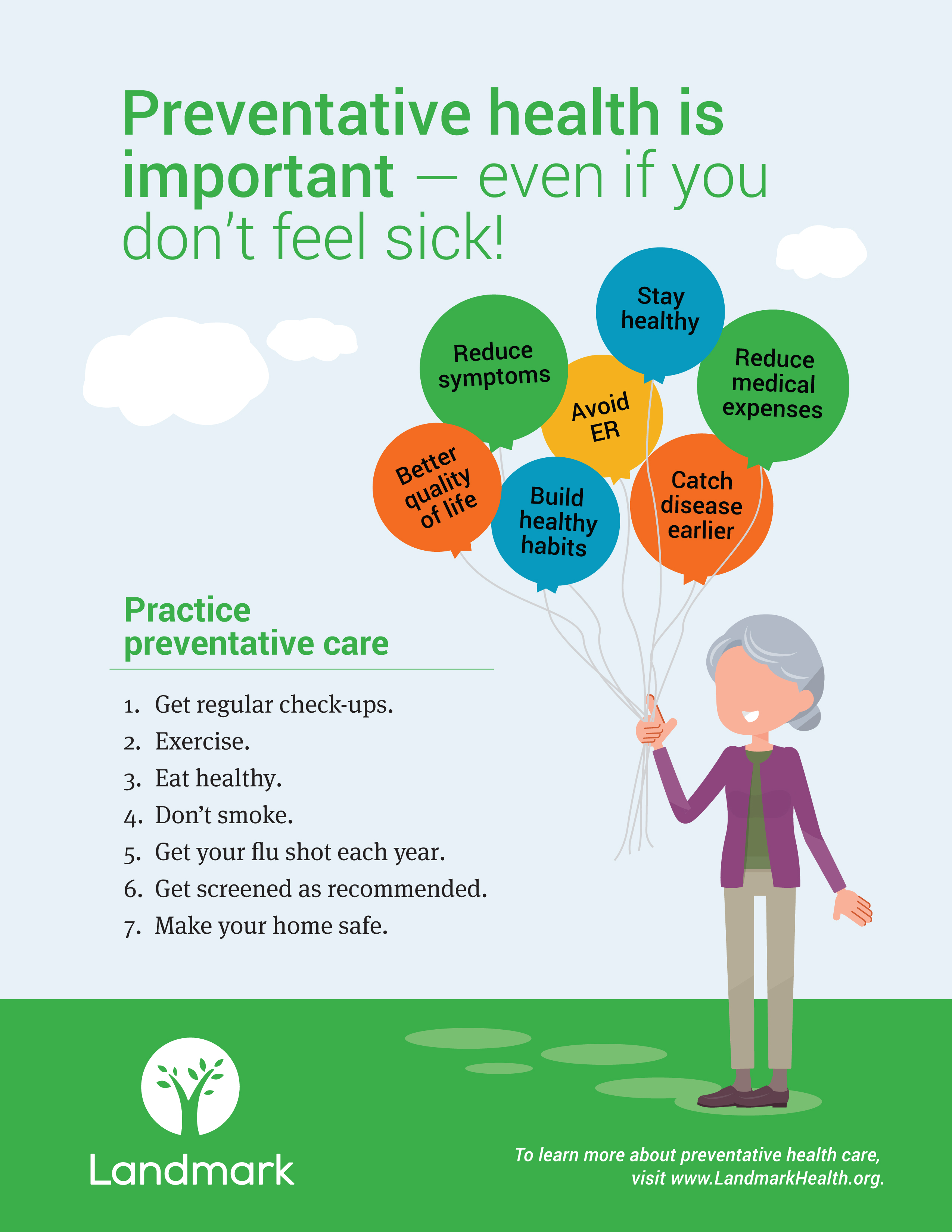
Blog post
Prioritizing Mental Health as a Universal Human Right
By: Neltada Charlemagne, DNP, APRN, PMHNP-BC, PHN, BHC
Keep the benefits of preventative care at the top of your mind by downloading our Preventative Care Infographic below.
If you’re feeling healthy, you may not feel like you need added medical support or preventative care. But keep in mind the following reasons to seek regular preventative care, even if you don’t feel sick.

Here are some tips you can use to practice healthy habits to improve your health and quality of life:

By: Neltada Charlemagne, DNP, APRN, PMHNP-BC, PHN, BHC

Older adults can safeguard themselves from the physical, mental and emotional toll of unexpected medical costs.

Optum Care Network – Monarch has teamed up with Landmark to deliver in-home medical care to members with multiple chronic conditions.